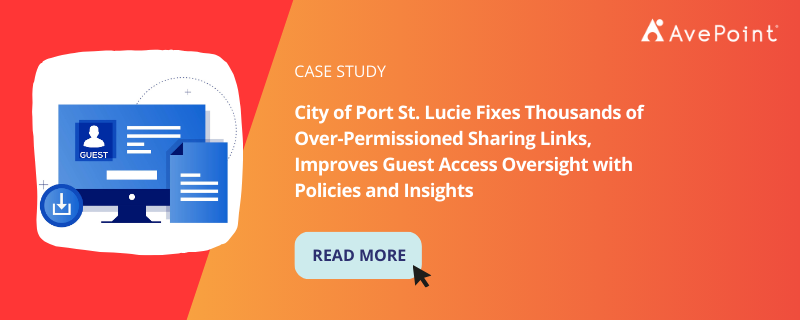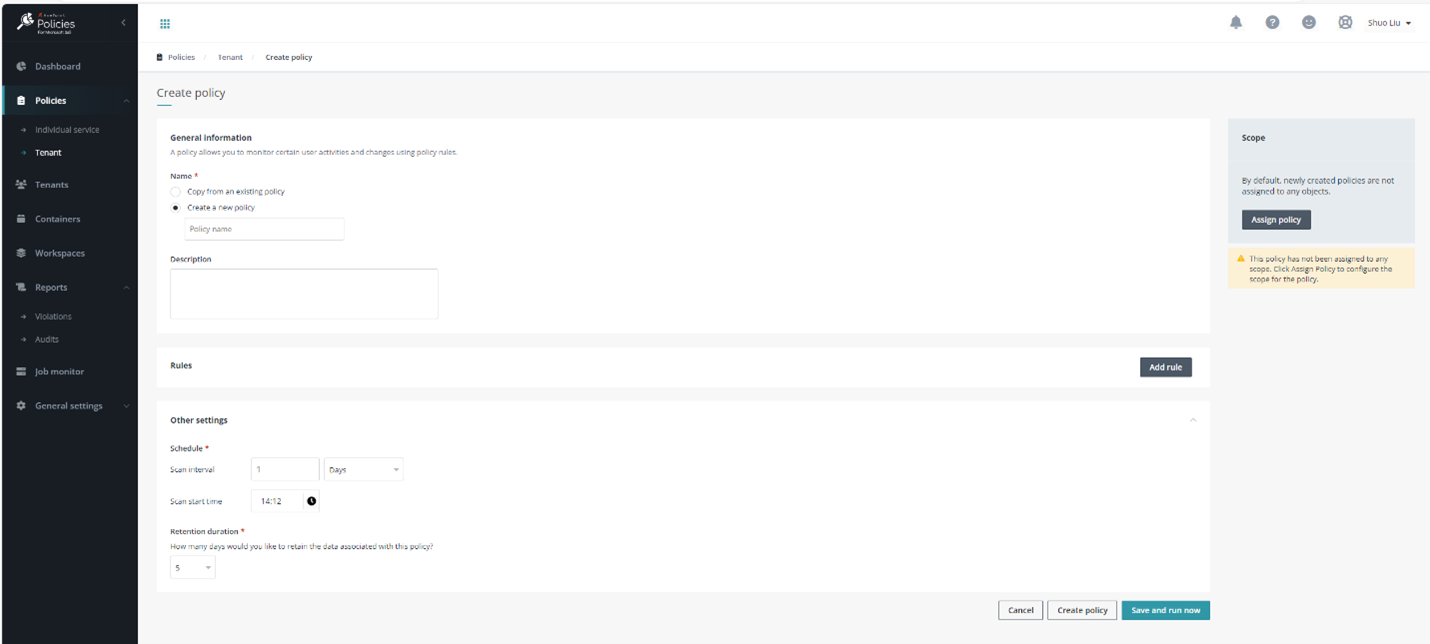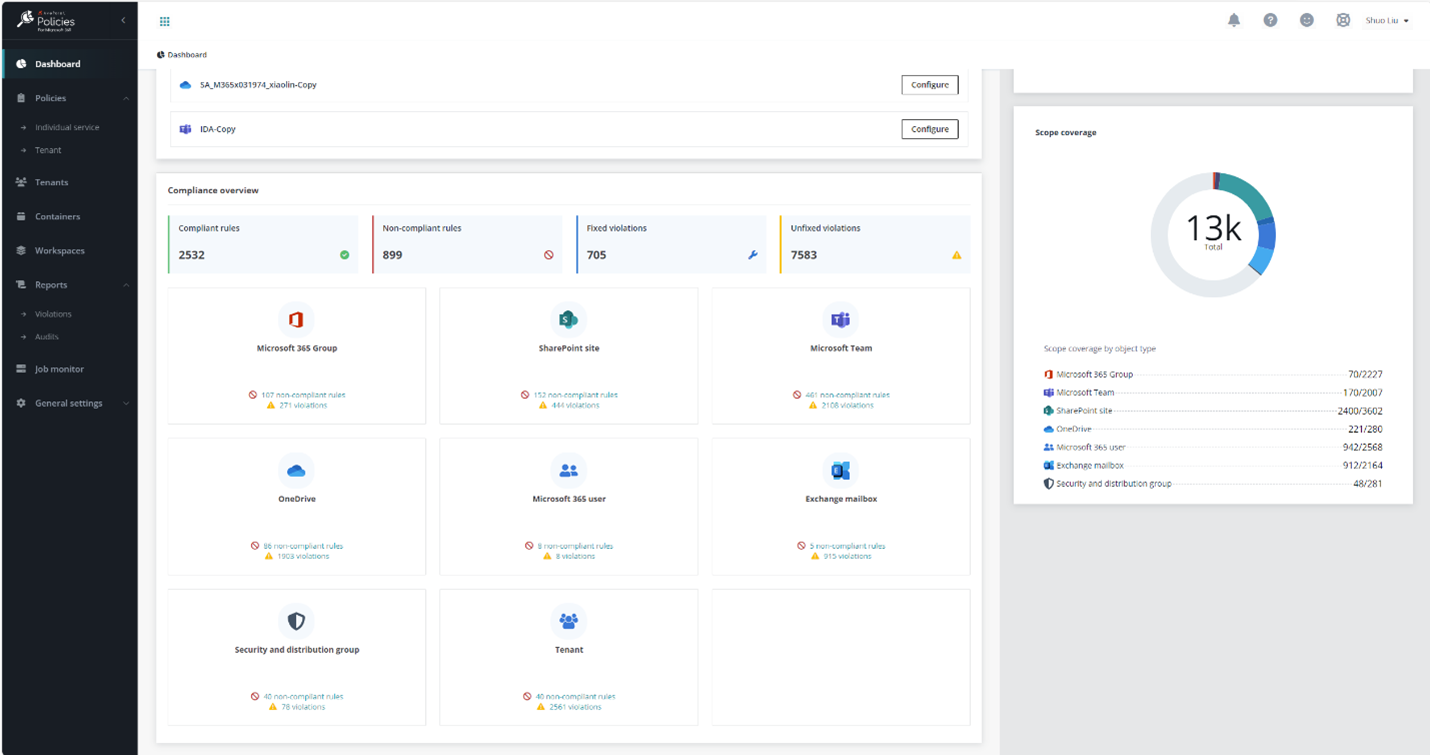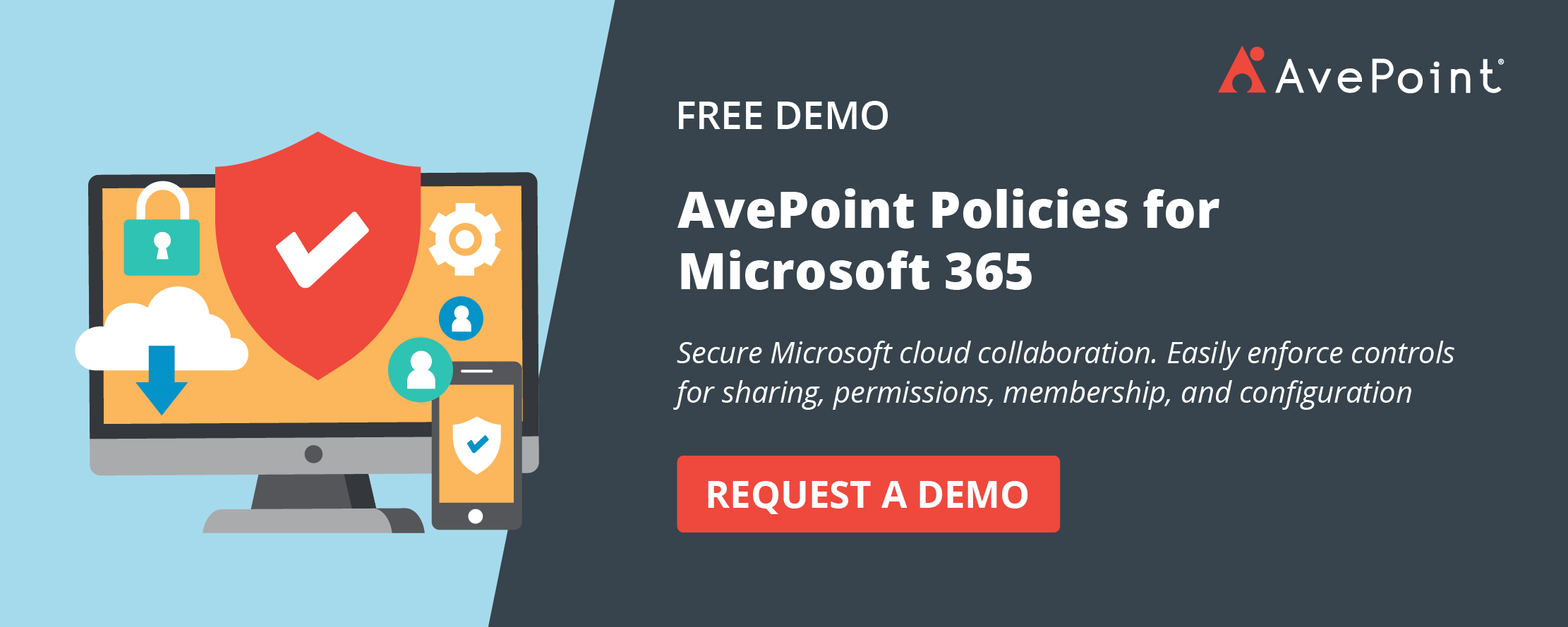Secure Your Microsoft 365: How Data Governance Can Benefit from Automated Policies

When talking about data governance, the importance of having automated policies must not be ignored.
Policies are the backbone of any governance strategy. In the context of Microsoft 365, policies define the rules and procedures that users must follow when interacting with data and workspaces.
Absent automated policies, businesses can set pre-configured rules to certain Microsoft 365 object types, such as SharePoint Online sites, OneDrive sites, Microsoft 365 Groups, and Microsoft Teams, to ensure that only authorized users can access, edit, or delete certain apps, groups, and data.
Yet, even with initial protections, IT and security teams struggle to fully scale and secure Microsoft 365 in a centralized framework of an organization’s policies and compliance regulations. Having an automated policies solution helps remove this bottleneck to having a comprehensive data governance strategy.
In this blog, we will delve into the benefits of pairing automated policies enforcement with your data governance strategy and framework.
3 Benefits of Automated Policies for Data Governance
It is essential to start with automated governance to establish a basis for your organization’s data governance strategy, but adding automated policies can enhance its features in 3 ways:
1. Establish a Balanced Approach to Guest Management
While Microsoft 365 has made it easier and more seamless to collaborate with anyone, it has also brought challenges in overexposed data and where sensitive data lives.
Guest access to workspaces should only be limited to certain groups, teams, or sites where they are involved. For example, a third-party supplier has been invited to a Teams group for coordination on regular delivery items and dates through chat. This access should only remain for the duration of the parties’ relationship. Say, if the company chooses a different supplier, the previous supplier’s access to Teams should then cease.
Organizations must consider taking what Gartner calls “Adaptive Governance,” which helps avoid a one-size-fits-all approach and instead creates a fluid governance strategy to become more adaptable to existing enterprise goals, and to allow them quickly pivot plans whenever necessary.
Depending on your data governance strategy you can pass some guest access and management down to the business stakeholder. Using tools like Cloud Governance can help set up the right request forms and questions to determine if the employee has the right to in the context of the request.
However, there are some workspaces and data where more control is needed. In these instances, you may want to create autonomy in the decision by automating the enforcement of a policy and solutions like AvePoint Policies for Microsoft 365 can help.
For example, a government agency in Florida began using AvePoint Policies, to help automate guest user access and external sharing permissions to their Microsoft 365 tenant.

2. Consistently Maintain Regulatory Compliance
Many industries are subject to strict regulatory requirements regarding data storage and management. For example, US-based healthcare and real estate entities are required to retain medical records for a number of years, depending on their state rules. As part of such rules, companies must also have stringent measures to avoid compromising sensitive information, such as personally identifiable information (PII).
Organizations must take compliance regulations seriously, as failure to meet them may lead to hefty fines. For example, a Health Insurance Portability and Accountability Act (HIPAA) fine may range from $137 to $68,928 per violation. Alarmingly, anti-money laundering (AML) compliance software maker NorthRow found that 40% use basic office productivity tools such as word processors or spreadsheets to manage compliance processes.
Thomson Reuters Institute’s 2023 Risk & Compliance Report showed that 65% of risk and compliance professionals believe in the value of automation in reducing the complexity of compliance management.
Automating policies can help with regulations compliance by ensuring that governance policies are applied consistently across the organization. It reduces the risk of non-compliance due to human error or oversight. It also allows for real-time monitoring and enforcement of governance policies, which can help identify and address compliance issues more quickly.
With AvePoint Policies, businesses can choose from a range of pre-built policy templates or create their own custom policies. Once a policy is in place, AvePoint’s solutions continuously monitor for compliance and automatically enforce the policy when necessary.

3. Streamline Workspace Lifecycle Management
Siloed data is one of the challenges organizations face today, and its effects are far-reaching. Siloed data causes redundancies and data inconsistencies that lead to poor data quality – this is costing organizations an average of $12.9 million annually, Gartner revealed.
But, organizations can help improve data quality through proper data governance and policies. This involves how every workspace is accessed, who can access and modify workspaces and data, and how data is created, retained, classified, and deleted.
Cloud Governance helps with streamlining operations by introducing policies on how workspaces are created and managed and how access to workspaces is requested.
This functionality from Cloud Governance can get a boost with automated policies. For example, a policy could automatically grant or revoke user permissions based on their role or department. This capability helps IT teams save time, free up resources for other tasks, and improve overall operational efficiency. More importantly, it helps reduce the risk of human error.
AvePoint Policies avoids data silos by enforcing Microsoft 365 security rules and best practices across various platforms such as Teams, Groups, Sites, and OneDrive. It automates policies defined in Cloud Governance and applies these rules to their entire tenant or specific workspaces. This ensures that data is not isolated in separate silos but is managed and protected consistently across the organization.

Bolster Your Data Governance Strategies with AvePoint
Policies are a critical component of any Microsoft 365 security strategy.
They help by providing a framework for managing and securing data, ensuring compliance with regulations, streamlining operations, improving user accountability, and proactively managing risks.
While AvePoint Cloud Governance is a great first step in managing and securing Microsoft 365, AvePoint Policies bolsters its capabilities by easy automation and enforcement of these policies — providing peace of mind that your policies will remain intact. AvePoint Policies automatically reverts configuration drifts and security issues, taking the complexity out of data governance.
Even in the organizational landscape, prevention is always better than cure. If you’re an AvePoint Cloud Governance customer, make sure you’re leveraging AvePoint Policies to boost the security of your Microsoft 365 workspaces.
See how AvePoint Policies can work for your organization. Request a demo today.

Phoebe Magdirila is a Senior Content Marketing Specialist at AvePoint, covering SaaS management, backup, and governance. With a decade of technology journalism experience, Phoebe creates content to help businesses accelerate and manage their SaaS journey.



